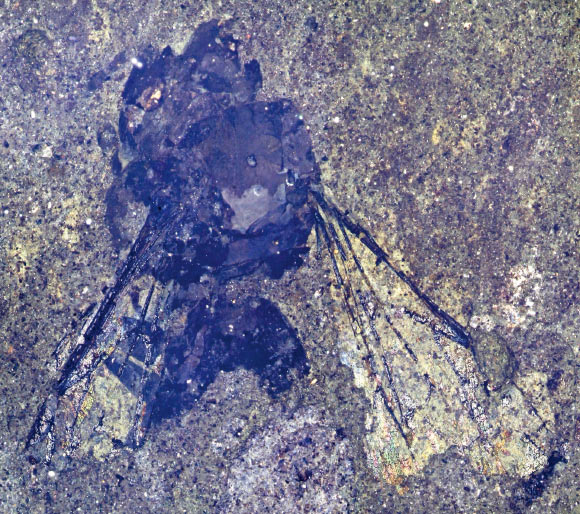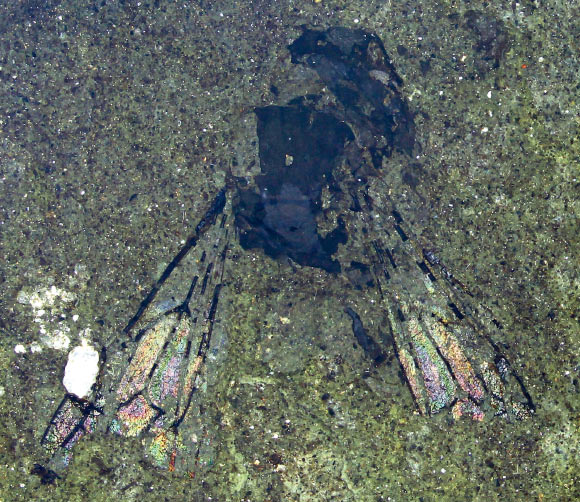Paleontologists have described a new species of the extant bee genus Leioproctus from a fossil specimen found in southern New Zealand.
Named Leioproctus barrydonovani, the new species lived during the Middle Miocene epoch, some 14.6 million years ago.
The ancient insect belongs to Leioproctus, a large genus within the plasterer bee family Colletidae.
Extant Leioproctus species are small, black, hairy bees between 4 and 16 mm in length.
They are found in Australasia and South America, and include the most common native bees in New Zealand.
“The biota of New Zealand is a mosaic of ancient lineages interspersed among arrays of relative newcomers that have diversified since the Oligocene-Miocene,” said Dr. Michael Engel from the American Museum of Natural History and Dr. Uwe Kaulfuss from the Georg-August-Universität Göttingen.
“Indeed, in many respects the fauna is typical of an island biota, reflective of lineages dispersing to the landmass at various times since its breakup from Gondwana c. 80 million years ago and then speciating.”
“Some insect lineages have clearly thrived and evolved unique features within New Zealand, but many are conspicuously and enigmatically depauperate given the complexity and scale of the landscape, seemingly reflecting their late arrival to the islands,” they added.
“Indeed, some prominent and complex biological interactions are poorly represented within the modern New Zealand fauna such as specialized insect pollinators, which are few in New Zealand and generalist flies are the dominant pollinators.”
“In fact, although bees are the preeminent pollinators worldwide, their diversity in New Zealand is meagre, with only 42 species of which a mere 28 are endemic.”
“This has led to a perception that bees are comparative newcomers to New Zealand and in the absence of any fossil record it has been challenging to determine the antiquity of the melittofauna.”

Leioproctus barrydonovani is represented by an…
Read the full article here

